This section is for paid subscribers only. Our subscription is only $3700/- for one full year.
You get unlimited access to all paid section and features on the website with this subscription.
Subscribe to read full article
This section is for paid subscribers only. Our subscription is only $37/- for one full year.
You get unlimited access to all paid section and features on the website with this subscription.
Not ready for a full subscription?
You can access this article for $2, and have it saved to your account for one year.
- Release Date24/06/1950
- GenreDrama
- FormatB-W
- LanguageTamil
- Run Time173 min
- Length4750.00 meters
- Censor RatingU
The film was an adaptation of one of the five Tamil classics, Kundalakesi. Parthiban, son of the royal priest, is disappointed at not being made the commandant of the king’s army. To discredit the new commandant Veeramohan, he takes to looting and robbing. The imbecile king is not in control of the situation. His daughter Jeeva is in love with Veeramohan. The minister’s daughter Amudavali grows fond of Parthiban, unaware of his evil ways. When she learns the truth, she makes futile attempts to change him. to get her out threatens to push her down. She outwits him and then takes his life. She announces his death in the royal court, only to be killed by the enraged priest.
This was one of the most popular films of the decade. The dialogues by M Karunanidhi, who later became the chief minister of Tamil Nadu, was one of the reasons for its popularity. His barbs against the royal priest had a distinct anti-priesthood edge which was part of the Dravidian movement. The songs were another reason for the movie’s success, particularly Varai! Nee Varai (Come O! Come) sung by Tiruchi Loganathan and Jikki. For T M Soundararajan, the playback singer whose career lasted more than three decades, this film was a landmark. Master Subbaiya, a teenage prodigy who died young, also sang a song in a cameo appearance as a cowherd. These songs are still popular and are featured in film music concerts. A long-playing disc of these songs was released in the late Seventies.
M G Ramachandran played the role of the commandant. However, the character that stood out was that of Amudavalli. Played well by Madhuri Devi. She portrayed an assertive and confident woman who could handle a sword with dexterity and could kill her husband when necessary. Such an independent female character was a rarity in films.
The film shows little respect for period details and costume authenticity. Parthiban, as a dacoit, wears a ‘Batman’ mask (Batman comics were popular in the Forties); his men wear Greek theatre masks, and modern fencing style is used by the soldiers. One refreshing feature was that many sequences had been shot outdoors, mainly in and out of Yercaud, a hill resort near Salem. Lalitha and Padmini, whose dance number was a sine qua non for any film that aspired to succeed in those days, had a number in this film as well.
[from the book The Eye of the Serpent by S Theodore Baskaran]
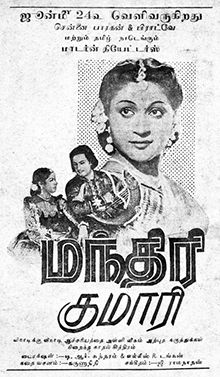
Cast
Crew
-
BannerModern Theatre Ltd, Madras
-
Director
-
Music Director
-
Lyricist
-
Story Writer
-
Dialogues
-
Cinematography
-
Editing
-
Sound Recording/ Audiography
-
Art Director/Production Design





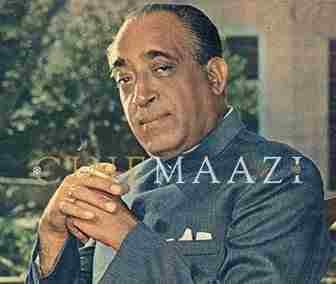
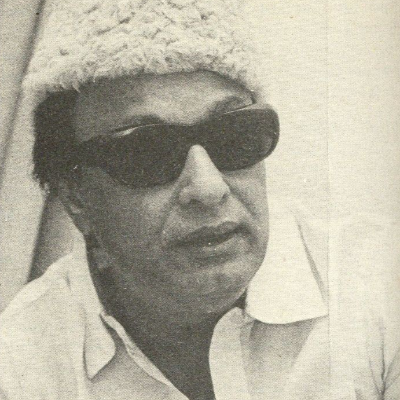
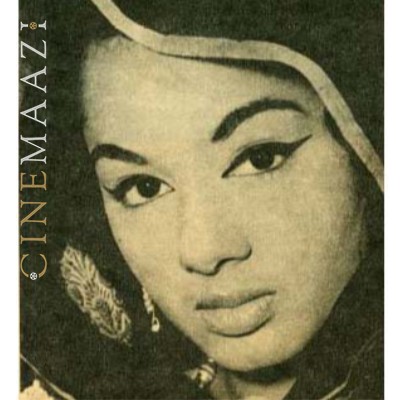
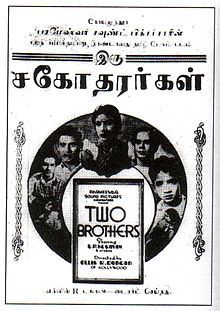

.jpg)



